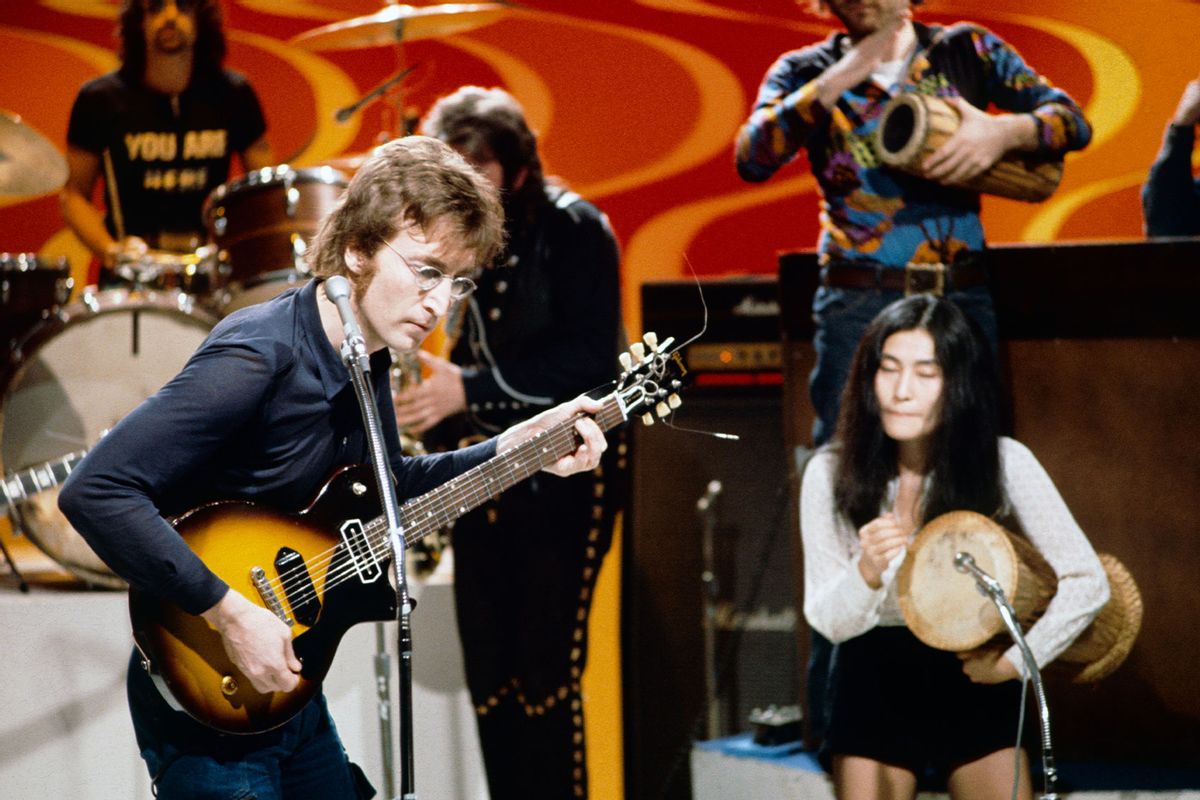Directed by Erik Nelson, "Daytime Revolution" gives viewers a powerful window into the early 1970s. If there is such a thing as a time machine, Nelson has fashioned it via this marvelous, transformative documentary. As with his work on "The U.S. vs. John Lennon," "Daytime Revolution" absolutely brims with narrative energy and fascinating characters. And in its finest moments, Nelson’s time capsule-like approach manages to shed vital light on the way we live now.
The documentary draws its storyline from the extraordinary week in February 1972 when John Lennon and Yoko Ono hosted the uber-popular "Mike Douglas Show," which commanded a massive audience of some 40 million viewers per week. For the duration of that remarkable week, the counterculture paraded itself in America’s living rooms via John and Yoko’s moveable feast of guests, a roster that included political activist Ralph Nader, the Black Panthers’ Bobby Seale, and comedian George Carlin.
In a conversation with me last week, Nelson pointed out that this 52-year-old happening is not so different from today’s polarizing political atmosphere. “We're living in an incredibly divisive, apocalyptic election year,” he said, “and 1972 was equally fraught with Richard Nixon and George McGovern vying for the White House—two starkly different choices. And there on daytime television are John and Yoko offering a message of unity amidst all that divisiveness.”
Further, Nelson rightly contends that John and Yoko’s residency on "The Mike Douglas Show" is arguably even more transgressive than "Saturday Night Live"’s premiere in 1975, that the irreverent comedy show was secreted away in the wee hours, while John and Yoko were situated in the heart of a mainstream TV slot, where they could showcase the counterculture for legions of American homemakers. In many ways, the episode marked the beginning of Lennon’s fight to stay in the country. “John and Yoko were very political—East Village-political,” says Nelson, “and their appearance led to Nixon declaring war on them. Just before the show aired, Strom Thurmond told the president, ‘I’m nervous about this, Dick. They’re taking sides.’”
Want a daily wrap-up of all the news and commentary Salon has to offer? Subscribe to our morning newsletter, Crash Course.
John and Yoko’s "Mike Douglas Show" residency has also gone down in history because of Lennon taking the stage for the one and only time with rock ‘n’ roll pioneer Chuck Berry. To see such heavyweights performing together is one of the documentary’s greatest pleasures. But it also presented an opportunity for Nelson to right a wrong, given that history has often depicted Ono as encroaching on Berry’s performance with her husband, especially when she engages in avant-garde voice modulation during “Memphis, Tennessee.”
Love the Beatles? Listen to Ken's podcast "Everything Fab Four."
As Nelson points out, John and Yoko were performing during that era with Elephant’s Memory as their backing band. Ono was an integral member of the group, “so this idea that Yoko somehow encroached on Chuck Berry is false. In actuality, Chuck Berry encroached on John and Yoko’s band. When Yoko chimes in, that to me is the true rock ‘n’ roll moment of that whole appearance. We're still talking about that 50 years later!”
In addition to Berry’s bravura appearance that week, John and Yoko’s "Mike Douglas Show" residency is marked by spirited conversation among the Lennons and their guests about a host of issues ranging from feminism to the anti-war movement. As Nelson demonstrates via "Daytime Revolution," the couple’s efforts to preach unity in the face of that era’s deep acrimony is a lesson that we could sorely use today.
"Daytime Revolution" hits select theaters on October 9, in honor of John Lennon's birthday.



Shares